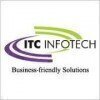Filter interviews by
Kivo Solutions Accounts & Finance Executive Interview Questions and Answers
Kivo Solutions Accounts & Finance Executive Interview Experiences
1 interview found
(2 Questions)
- Q1. What is TDS in Income tax?
- Ans.
TDS stands for Tax Deducted at Source, which is a system where tax is deducted by the payer at the time of making payment.
TDS is deducted by the payer at the time of making certain payments like salary, rent, commission, etc.
The deducted amount is then deposited with the government on behalf of the payee.
TDS rates vary based on the type of payment and the payee's status.
TDS ensures a regular inflow of tax revenue for t...
- Q2. TDS is tax deductible at spurce
- Ans.
Yes, TDS is tax deductible at source.
TDS is deducted by the payer at the time of making payment to the payee.
It is deducted on various types of income such as salary, interest, commission, etc.
The deducted TDS amount is then deposited with the government.
The payee can claim credit for the TDS amount deducted while filing their income tax return.
Top trending discussions






Interview questions from similar companies

Finance Executive Interview Questions & Answers
Virtusa Consulting Servicesposted on 13 Jan 2025
I applied via campus placement at Institute of Cost and Works Accountants of India (ICWAI) and was interviewed in Dec 2024. There were 3 interview rounds.
Online assessment (Technical, English, Reasoning)
(6 Questions)
- Q1. Difference between Balance sheet and trial balance
- Ans.
Balance sheet shows assets, liabilities, and equity at a specific point in time. Trial balance lists all ledger accounts with their balances.
Balance sheet is a snapshot of a company's financial position at a specific point in time.
Trial balance is a list of all ledger accounts with their balances to ensure debits equal credits.
Balance sheet includes assets, liabilities, and equity sections.
Trial balance is used to prep...
- Q2. Standard costing formula
- Ans.
Standard costing formula calculates the expected cost of a product based on predetermined standards.
Standard costing formula includes direct materials, direct labor, and overhead costs.
It helps in comparing actual costs with standard costs to identify variances.
Formula: Standard Cost = Standard Quantity of Inputs x Standard Price of Inputs
- Q3. Journal entries for Prepaid Accruals Depreciation with accumulated depreciation concept Provision for Bad debts DTA and DTL
- Ans.
Explanation of journal entries for Prepaid, Accruals, Depreciation, Provision for Bad debts, DTA, and DTL.
Prepaid expenses are initially recorded as assets and then expensed over time as they are used up.
Accruals are expenses incurred but not yet paid or revenue earned but not yet received.
Depreciation is the allocation of the cost of a fixed asset over its useful life, with accumulated depreciation representing the to...
- Q4. Case study on Ind AS 115
- Q5. Preparation of balance sheet and computation of various ratios
- Ans.
Preparation of balance sheet involves listing assets, liabilities, and equity. Ratios are computed using financial data from the balance sheet.
List all assets, liabilities, and equity on the balance sheet
Calculate various financial ratios such as current ratio, debt to equity ratio, and return on equity
Use formulae like Current Ratio = Current Assets / Current Liabilities
Interpret the ratios to analyze the financial he
- Q6. Accounting principles
(6 Questions)
- Q1. What is DTA and DTL
- Ans.
DTA stands for Deferred Tax Asset and DTL stands for Deferred Tax Liability.
DTA is an asset recorded on a company's balance sheet that may be used to reduce taxable income in the future.
DTL is a liability recorded on a company's balance sheet that represents taxes that have been accrued but not yet paid.
DTA arises when a company has overpaid taxes or has tax deductions that exceed its taxable income.
DTL arises when a c...
- Q2. Accounting entry for accumulated depreciation
- Ans.
Accumulated depreciation is a contra asset account that represents the total depreciation expense taken on an asset since it was acquired.
Accumulated depreciation is recorded on the balance sheet as a reduction from the gross amount of fixed assets to arrive at the net book value.
The accounting entry for accumulated depreciation involves debiting the depreciation expense account and crediting the accumulated depreciati...
- Q3. Few resume based questions
- Q4. Standard costing formula
- Ans.
Standard costing formula calculates the expected cost of a product based on predetermined standards.
Standard costing formula = Standard cost of direct materials + Standard cost of direct labor + Standard manufacturing overhead cost
Standard cost of direct materials = Standard quantity of materials x Standard price per unit
Standard cost of direct labor = Standard hours of labor x Standard rate per hour
Standard manufactur...
- Q5. Difference between budgeting and forecasting
- Ans.
Budgeting involves setting financial goals and allocating resources, while forecasting predicts future financial outcomes based on past data and trends.
Budgeting is a plan for how to allocate resources and achieve financial goals
Forecasting predicts future financial outcomes based on past data and trends
Budgeting is typically done on an annual basis, while forecasting can be done on a shorter or longer term basis
Budget...
- Q6. Meaning of variance analysis
- Ans.
Variance analysis is a technique used to identify and analyze the difference between planned financial outcomes and actual results.
Variance analysis helps in understanding the reasons for deviations from budgeted or expected figures.
It involves comparing actual financial performance with budgeted or standard performance.
Common types of variances include price variance, quantity variance, and mix variance.
Variance analy...
Interview Preparation Tips
First technical interview was for 45 - 50 mins
Second technical interview was for 20 mins

Financial Analyst Interview Questions & Answers
Societe Generale Global Solution Centreposted on 31 Jan 2025
(2 Questions)
- Q1. What is corporate action
- Q2. Trade life cycle

Financial Analyst Interview Questions & Answers
Hexaware Technologiesposted on 16 Jan 2025
I applied via Naukri.com and was interviewed in Dec 2024. There was 1 interview round.
(1 Question)
- Q1. Tell me about yourself.

I applied via Referral and was interviewed in Feb 2024. There was 1 interview round.
(2 Questions)
- Q1. Management fee how is calculated
- Q2. Private equity and real estate funds
Interview Preparation Tips

I applied via campus placement at Institute of Chartered Accountant of India (ICAI) and was interviewed before Jul 2023. There was 1 interview round.
(2 Questions)
- Q1. Ind AS 115, 2, 116
- Q2. Latest gst and incometax amendments
- Ans.
The latest GST and income tax amendments are important for finance managers to stay updated on regulatory changes.
GST amendments include changes in tax rates, input tax credit rules, and compliance requirements.
Income tax amendments may involve changes in tax slabs, deductions, and reporting requirements.
For example, recent GST amendments introduced a new e-invoicing system for businesses with turnover above a certain ...

(1 Question)
- Q1. Tell me about yourself

(1 Question)
- Q1. What is the difference between EV and Equity Value
- Ans.
EV includes both debt and equity while Equity Value only includes equity.
EV = Equity Value + Debt - Cash
Equity Value = Market Capitalization + Preferred Stock + Minority Interest - Cash
EV is used to determine the total value of a company while Equity Value only represents the value of the shareholders' equity
EV is often used in M&A transactions while Equity Value is used to determine a company's stock price
Interview Preparation Tips
Excel - navigating data models etc.

Financial Analyst Interview Questions & Answers
Optum Global Solutionsposted on 30 Jan 2022
I applied via Company Website and was interviewed in Aug 2021. There were 2 interview rounds.
(4 Questions)
- Q1. Tell me about yourself.
- Q2. About financial modelling and valuation
- Q3. Typing speed and ms excel
- Q4. You are comfortable any shifts
(2 Questions)
- Q1. What are your strengths and weaknesses?
- Q2. About ms Excel What do you know vlookup hlookup shorting filter modelling
Interview Preparation Tips

I applied via Referral and was interviewed in Aug 2020. There were 3 interview rounds.
Interview Questionnaire
2 Questions
- Q1. I was asked to brief about my role.
- Q2. I was asked if I have worked on Oracle ERPs?
Interview Preparation Tips
Kivo Solutions Interview FAQs
Tell us how to improve this page.
Interview Questions for Popular Designations
- Finance Executive Interview Questions
- Accounts & Finance Manager Interview Questions
- Finance Manager Interview Questions
- Financial Analyst Interview Questions
- Assistant Manager Finance & Accounts Interview Questions
- Finance Intern Interview Questions
- Senior Executive Finance & Accounts Interview Questions
- Assistant Manager Finance Interview Questions
- Show more
Kivo Solutions Accounts & Finance Executive Interview Process
based on 1 interview
Interview experience
Interview Questions from Similar Companies
|
Senior Accounts Executive
32
salaries
| ₹2.8 L/yr - ₹4.3 L/yr |
|
Executive Accountant
25
salaries
| ₹1.5 L/yr - ₹3.6 L/yr |
|
Accounts Manager
6
salaries
| ₹6 L/yr - ₹7.8 L/yr |
|
Assistant Manager
5
salaries
| ₹2.7 L/yr - ₹6.1 L/yr |
|
Accountant
5
salaries
| ₹4.1 L/yr - ₹4.9 L/yr |

TCS

Infosys

Wipro

HCLTech
- Home >
- Interviews >
- Kivo Solutions Interview Questions >
- Kivo Solutions Accounts & Finance Executive Interview Questions







